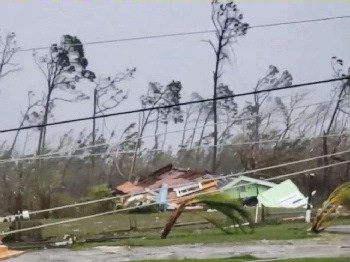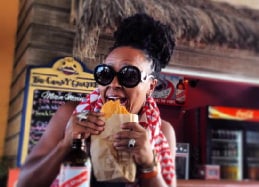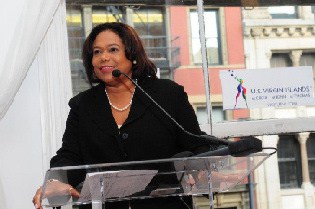Is Butch Stewart hacking regional elections… again? – Part 1
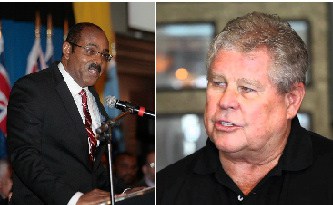
By Melanius Alphonse
ST. LUCIA – Two articles written by Glendon Phillip have appeared in the Jamaica Observer newspaper attacking the prime minister of Antigua and Barbuda, Gaston Browne. Phillip’s articles are two of many that have appeared in the newspaper, in a sustained campaign savaging the elected leader of Antigua and Barbuda.
It is this obvious campaign that has sparked my interest… especially in the light of the (reportedly heavily influenced) outcome of the last election in Saint Lucia. Why is it happening, whose interest is it serving and are there lessons to be learned for Saint Lucia in the future?
The Jamaica Observer is owned by Gordon ‘Butch’ Stewart, who is also the main shareholder of the privately-held Sandals Resort International (SRI), the operators of Sandals resorts in several Caribbean countries, including Antigua and Barbuda and Saint Lucia. These two ownerships are important to note since Stewart controls both.
The first Phillip article appeared on July 3, 2016, in the wake of the revelation that the Browne government in Antigua and Barbuda had uncovered an undisclosed 2009 agreement between Stewart’s Sandals operation on Antigua and the then government of the United Progressive Party (UPP) whose then finance minister is now the party’s present leader, Harold Lovell.
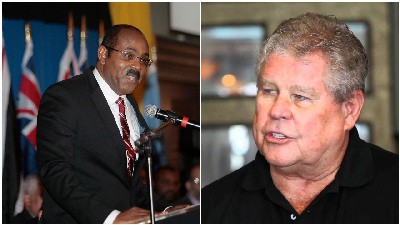
The agreement was made on the eve of the 2009 general elections. According to its terms, Stewart’s Sandals resort was allowed to ignore the laws of Antigua and Barbuda by retaining for its own use a government sales tax that was in actual fact revenue due to the state on behalf of the people of Antigua and Barbuda.
Over the period, Stewart’s Sandals resort pocketed millions of dollars that other competing hotels were required to pay under the law, putting them at an economic disadvantage while, at the same time, depriving the state of very substantial revenues.
The closeness of the 2009 general election to the agreement between the UPP regime and Stewart’s Sandals resort holds more than co-incidental significance.
In the ongoing corruption trial of former Turks and Caicos Islands (TCI) premier Michael Misick and others, in 2016 earlier media reports were confirmed by evidence adduced by the prosecution that US$1,650,000 had been paid by Sandals to Prestigious Properties Limited, a real estate company in the TCI, in which high government officials were the shareholders.
At the time it was first exposed, Stewart claimed that the payment was “unauthorised” and was made because Sandals “was legally bound” because the “payments were made by a senior executive and then treasurer of Sandals”.
Be that as it may, immediately after the Gaston Browne government in Antigua moved to recover at least some portion of the sales tax that Sandals retained for its own use and benefit, an anti-Browne onslaught was launched in the Jamaica Observer, clearly indicating, at the very least, that the newspaper was blatantly using its pages to attack the Antigua government on behalf of its owner.
Little attention has been paid by the publication to fairness and objectivity, and none to the principles of investigative journalism that would have sought to determine where truth and fact actually exist.
The Jamaica Observer’s latest attack on Prime Minister Browne is headlined “Political Lunacy!” and is authored by Philip, who is paid by the newspaper and is described, with no clarification or evidence, as “an international investment consultant working in the Caribbean”.
In this second savaging of the Antigua and Barbuda leader, Phillip employs invective and vitriol in his description of Browne’s policies and statements, which he describes as “flights of fancy”, “prepared to preside over a hungry, jobless population”, “running off at the mouth”, “small minded approach to tourism”, and “a Category 6 hurricane in the person of Gaston Browne has formed in the eastern Caribbean”.
Phillip’s language is more akin to a campaigning political opponent than it is of an “investment consultant” writing an “expert” column.
By any objective standards, the bald assertions made by Phillip in his recent attack on Browne are riddled with inaccuracies and falsehoods.
The Economic Commission for Latin America and the Caribbean (ECLAC) records that Antigua and Barbuda was the fastest growing economy in the Caribbean region in 2016 at 4.6 percent; the country’s national debt to GDP ratio has been cut from 102 percent to 76 percent under Browne’s administration; unemployment has been reduced from over 20 percent to 10 percent; and an original IMF debt of US$120 million has been decreased to US$13 million.
With regard to debt, the Caribbean Development Bank (CDB), in its Caribbean Economic Review and Outlook for 2017, reports that Antigua and Barbuda was the lead country in reducing debt (by 5.5 percent) ahead of Grenada (by 5.1 percent) and Jamaica (by 4.5 percent). These accomplishments hardly reflect Phillip’s claim that Browne’s performance is “lacklustre”.
Since the disclosure earlier this year of the 2009 deal by which Sandals kept the government sales tax and the Browne government’s decision that the law must be upheld, the Jamaica Observer’s pages have been used for a sustained campaign to paint the Antigua and Barbuda leader as “anti-private sector investment”.
Phillip went as far as to state a blatant untruth. He claimed that “in a bid to frighten investors in the hotel industry”, Browne “says he wants “to acquire ownership in hotels in their territories”.
Public statements by Browne, which are freely available online and in the public domain, in no way support Phillip’s claim. What Browne is on record as saying is that “some hoteliers” have demanded tax and other concessions far beyond the limits set by law, and this is unfair to the taxpayers of the country.
Stewart is apparently such an hotelier, not only in Antigua but in Saint Lucia and other islands of the Caribbean. As a counter to this, Browne has proposed that his government will invest in new hotels in joint venture partnerships with the private sector. The proposition is that the government would take a minority interest, but get a share of profits that would be used to finance the needs of the county.
Contrary to the Jamaica Observer article, Browne has “no scorched earth policy” that would succeed “in driving out hotel investors”.
In violation of all the rules of good journalism, the Jamaica Observer is using its pages to vilify and malign the Antigua and Barbuda prime minister, whose policies do not suit Gordon ‘Butch’ Stewart – the common owner of Sandals resorts and the newspaper.
It begs the question: is Stewart seeking to influence regional elections by means of his media mouthpiece, in addition to financing political parties that favour his business interests… and has this happened before in Saint Lucia?
Part 2: Election financing in Saint Lucia and prime ministerial jaunts in private planes – what is the quid pro quo?
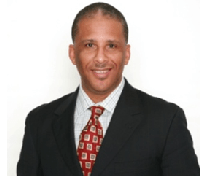
Melanius Alphonse is a management and development consultant, a long-standing senior correspondent and a contributing columnist to Caribbean News Now. His areas of focus include political, economic and global security developments, and on the latest news and opinion. His philanthropic interests include advocating for community development, social justice, economic freedom and equality. He contributes to special programming on Radio Free Iyanola, RFI 102.1FM and NewsNow Global analysis. He can be reached at [email protected]

